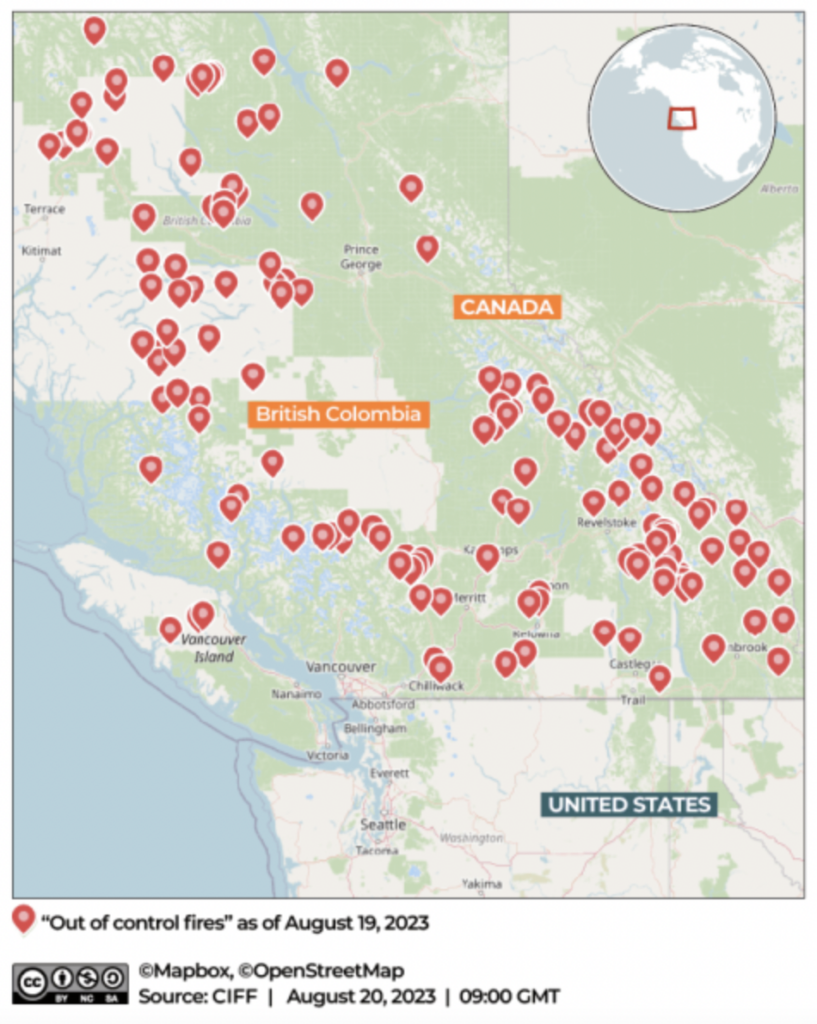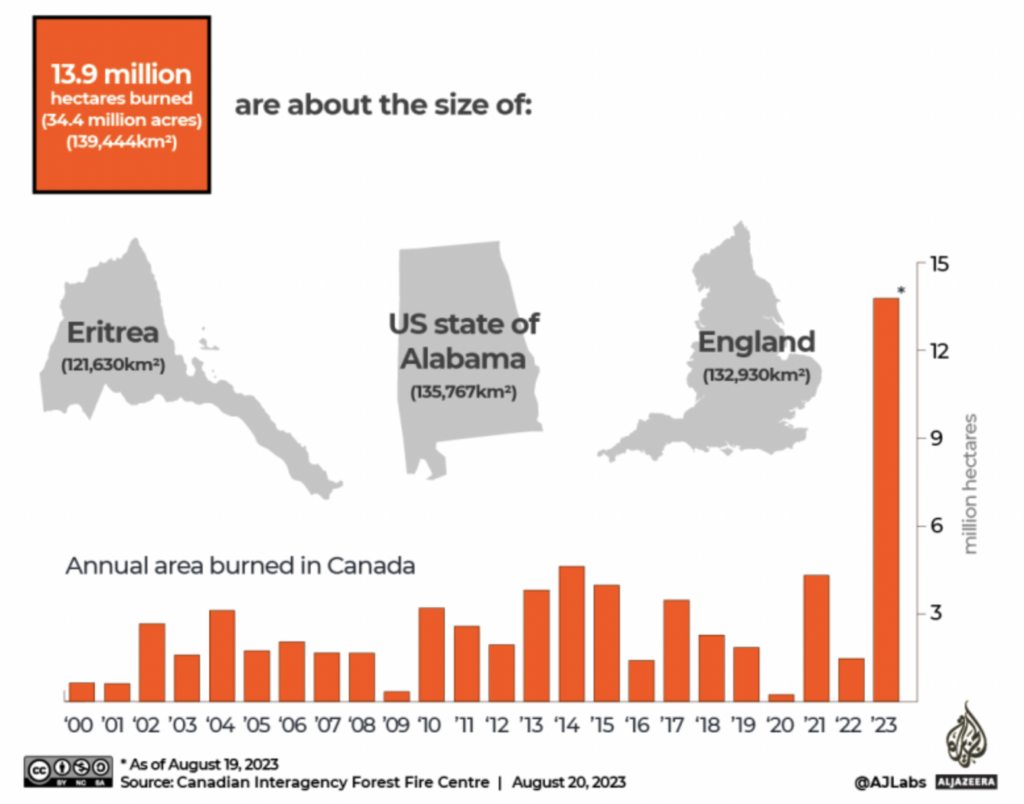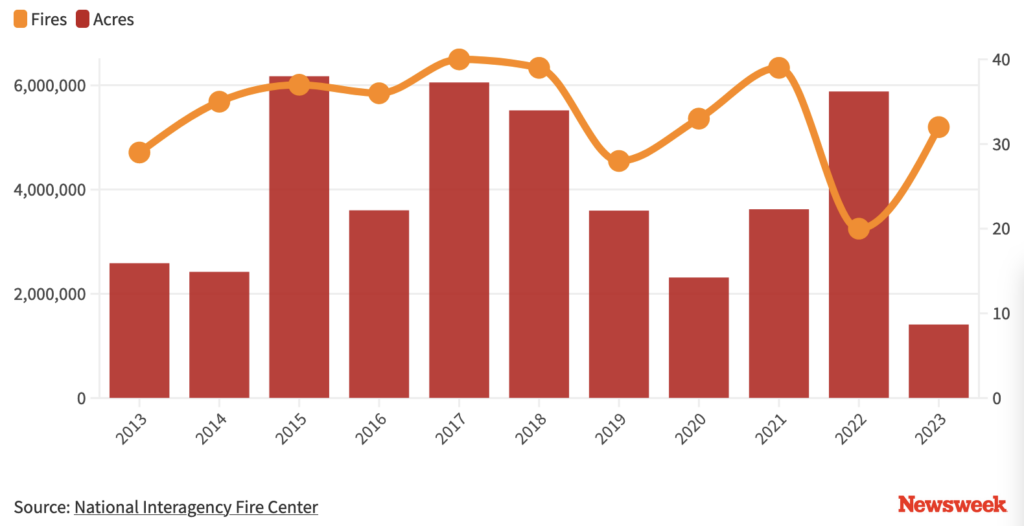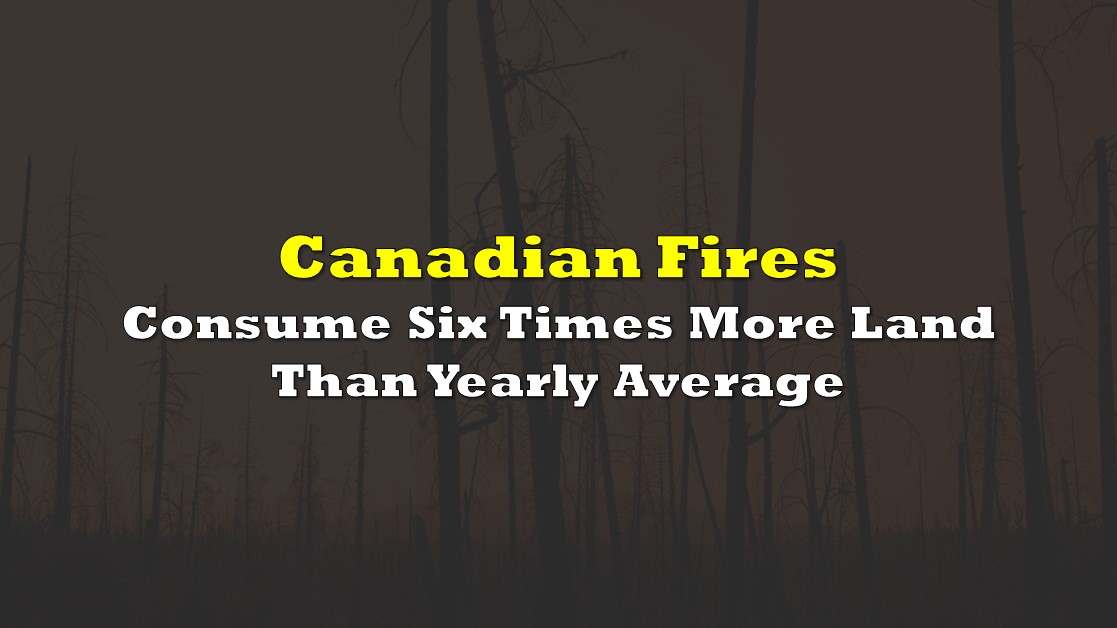Unfortunately, wildfires in British Columbia — centered around Kelowna, a city of 150,000 people located 300 kilometers east of Vancouver — continue to burn, threatening a significant portion of the province’s population.
As of last count, some 35,000 residents were ordered to evacuate, and 36,000 more were under evacuation alert.

The Kelowna fires caused the closure of a portion of the TransCanada highway, the main east-west artery used to move road freight from many parts of western Canada to the Port of Vancouver. This port is Canada’s busiest.
More than 200 fires are also burning around Yellowknife, the capital of Northwest Territories. Yellowknife’s 20,000 residents, plus people in surrounding communities, have also been ordered to leave the area.
These blazes add to a depressing wildfire scorecard in Canada in 2023 and represent a remarkable increase from the damage experienced in prior years. Many scientists believe that human-caused global warming conditions are amplifying the devastating effect of natural disasters such as fires.
According to the Canadian Interagency Forest Fire Centre, more than 13.9 million hectares have been scorched in Canada so far in 2023, more than six times the 2.2 million hectare average over the last ten years and about double the previous record of 7.6 million hectares destroyed in 1989. Put another way, an area roughly the size of all of England has been burned in Canada just over the last handful of months.

In contrast, the number of acres burned in the U.S. this year through August 9 is much smaller than in prior years and only about a quarter of last year’s total, per the National Interagency Fire Center. Note that this data does not appear to include effects of the recent Maui wildfires and the horrific toll there in terms of lives lost and property damage.

The key reason for the far lower incidence of wildfires in the U.S. versus Canada appears to be the wet winter experienced in most of California. That precipitation dampened what had been very dry soil, which in turn cut wildfire risk in the spring and early summer months.
Information for this story was found via the sources mentioned within the article. The author has no securities or affiliations related to the organizations discussed. Not a recommendation to buy or sell. Always do additional research and consult a professional before purchasing a security. The author holds no licenses.









